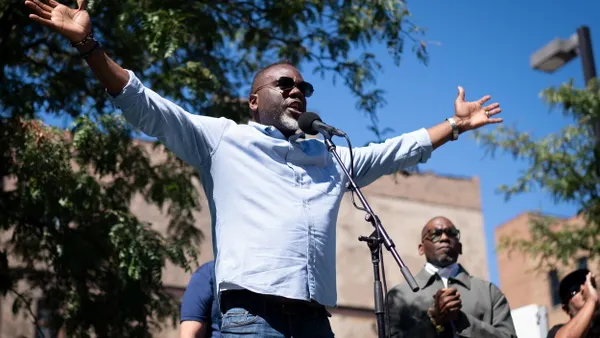With public images and symbols of the Confederacy dotted across the country, city leaders from coast to coast may soon face a decision to remove controversial statues or rename public spaces. The debate over Confederate symbols and monuments isn’t new, but recent violent events in Charlottesville, VA, spurred by white nationalists, have put a new spotlight on the conversations. Groups are promising to continue protests and other types of public demonstrations over racial conflict, which could snowball into a whirlwind of chaos nationwide.
While it’s important that there can be robust debate and public discussion, it is absolutely crucial that city officials take steps to protect public safety during protests and other demonstrations.
Since Saturday, some cities have already disposed of Confederate monuments or made plans for dealing with future protests. Here’s how four cities have acted, or made plans, to keep their citizens safe while dealing with such an emotionally-charged issue.
Baltimore
Mayor Catherine Pugh made headlines midweek with the surprise removal of three contentious statues from the city — two honoring the Confederacy and one honoring Justice Roger B. Taney, the Supreme Court justice who wrote the infamous Dred Scott Decision. The statues all came down in one night, without any prior announcement.
Discussing the surprise overnight removal of Baltimore's Confederate statues. https://t.co/Ofpt47lqJx via @RoughlySpeaking pic.twitter.com/AmwQ91ZFe5
— The Baltimore Sun (@baltimoresun) August 16, 2017
The next morning, Pugh said she wanted the statues to come down quickly and without fanfare in order to avoid the risk of any protests or counter-protests spinning out of control, according to The Baltimore Sun. Activists had pledged to tear down some of the statues themselves, like activists did in Durham, NC earlier in the week. Preempting citizens from removing the statues, while it may have been costly, was a way to prevent accidental injury and potentially violent protests.
Boston
Organizers of a "Free Speech Rally" have secured a permit to gather on the Boston Common on Saturday afternoon, and police are already making plans to mitigate any chaos, according to Boston Magazine.
Boston Mayor Marty Walsh has already sent a strong signal to the group, saying that Boston doesn’t want hate groups in the city. City officials said that, to keep the peace and keep individuals safe, certain items — like flag poles — will be banned and bags will be subject to searches. Police will also maintain a barricade between the scheduled protest and the anticipated counter-protesters.
Lexington, KY
Just hours after the deadly collision in Charlottesville, Lexington Mayor Jim Gray announced his intention to remove two Confederate statues from the city. Since then, a white nationalist group announced its intention to protest the removal and even consider a lawsuit to stop the city from moving its statues, according to the Lexington Herald Ledger.
Gray reiterated that his plan was to relocate, not destroy, the statues. Police officials said they had stepped up patrols around the statues and the chief of police said they had already spoken with officials in Charlottesville to begin preparing for a white nationalist rally. Other Kentucky cities have also pledged to offer backup if the situation calls for it.
Gainesville, FL
Construction workers spent four hours taking down a Confederate statue in downtown Gainesville the Monday after the violence in Charlottesville. While the statue was a hot-button topic in the city for more than a year, according to The Gainesville Sun, the statue ultimately came down without any protest.
Police officers were on scene just in case, the Sun said. The statue wasn’t destroyed, but moved to a cemetery southeast of the city. The United Daughters of the Confederacy agreed to take the statue after it was removed more than a month ago. Compromising with some of the sides of the issue — by removing, but relocating instead of destroying — is a potential strategy for decision-makers to avoid conflict and keep protests from escalating.











